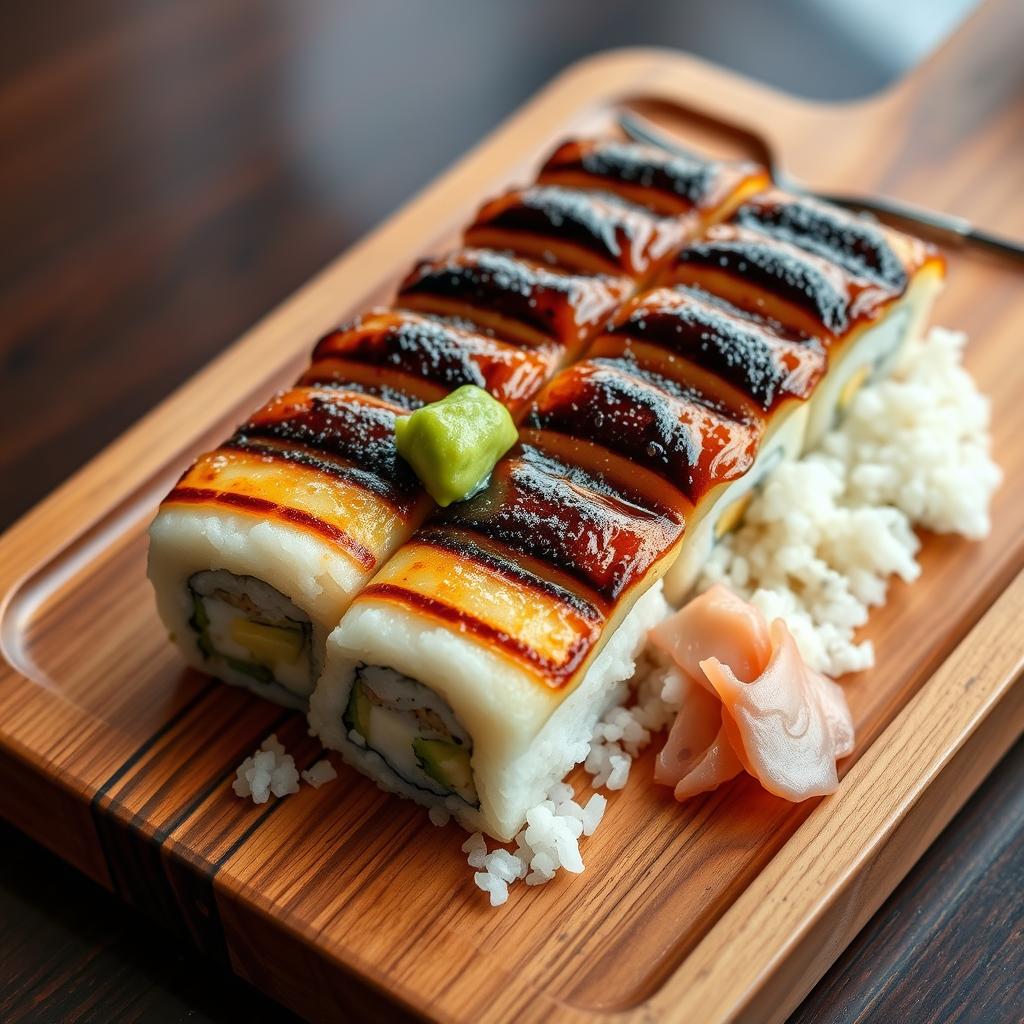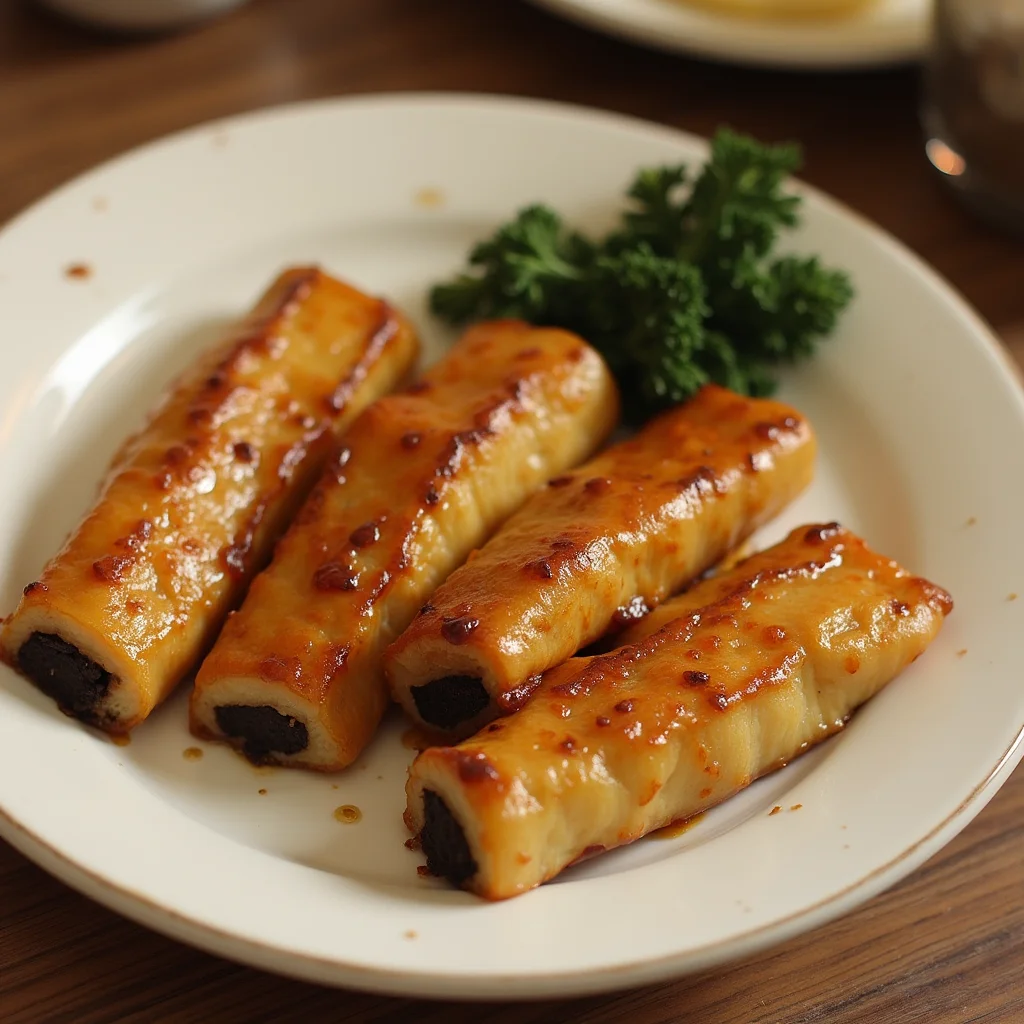What does unagi mean in slang? It’s one of those intriguing terms that has transitioned from Japanese cuisine to pop culture. Once just a type of food, unagi now pops up in TV shows, online trends, and casual chats, carrying meanings beyond its original roots.
Picture this: you’re hanging out with friends, and someone mentions “unagi.” But they’re not talking about the grilled eel you know. The word has taken on a new life in slang dictionaries and memes. From its roots in Japanese cuisine to its current cultural status, unagi is more than just a dish. It’s a journey through language, showing how words change over time.
Table of Contents

Key Takeaways
- Unagi transcends its original meaning in Japanese cuisine
- The term has gained significant traction in pop culture
- Urban Dictionary provides unique interpretations of unagi
- Slang meanings can differ dramatically from original definitions
- Understanding context is crucial when using unagi
Understanding Unagi: From Japanese Cuisine to Pop Culture
Unagi, a term deeply rooted in Japanese cuisine, has grown from a simple fish to a global phenomenon. This change shows Japan’s rich culinary and cultural world. It has caught the interest of food lovers and pop culture fans everywhere.

Traditionally, unagi is the Japanese freshwater eel, a favorite in Japanese food. Chefs grill and glaze it with sweet soy sauce. This makes it a key dish in Japan’s restaurants.
Traditional Japanese Meaning
In Japanese cooking, unagi is more than food. It stands for:
- Nutritional strength and vitality
- Summer energy restoration
- A delicacy enjoyed during specific seasonal festivals
Modern Cultural Evolution
Unagi has also entered pop culture. It’s seen in TV shows and online memes. This shows how it has become a fun part of modern talk.
“Unagi is not just a fish, it’s a cultural experience” – Japanese Food Critic
Global Recognition
Unagi’s global fame shows how a Japanese dish can win hearts worldwide. Now, restaurants everywhere offer unagi. This introduces new people to this special dish.
| Cultural Aspect | Significance |
|---|---|
| Culinary Tradition | Grilled freshwater eel with sweet soy glaze |
| Pop Culture Reference | Meme-worthy term in media and conversations |
| Global Spread | International restaurant menus and cultural awareness |
The Origins of Unagi in Japanese Language

Unagi is more than just a term for freshwater fish in the Japanese language. It holds deep cultural and linguistic value. This word goes beyond its simple meaning of eel.
The history of unagi shows us the beauty of Japanese language. In Japanese cooking, unagi means the Japanese freshwater eel. This fish has been a favorite in Japanese dishes for many years.
“Unagi is not just a fish, but a cultural symbol embedded in language and tradition.” – Japanese Culinary Historian
- Original meaning: Japanese freshwater eel species
- Linguistic classification: Noun in Japanese language
- Culinary significance: Popular ingredient in traditional dishes
Unagi is not just a fish. It has grown to mean more in language and culture. This shows how language can change and grow.
| Language Context | Meaning |
|---|---|
| Culinary | Freshwater eel dish |
| Metaphorical | Awareness, readiness |
| Slang | State of alertness |
Learning about unagi’s journey in language helps us see how Japanese words become deep cultural symbols.
What Does Unagi Mean in Slang?
Explore the world of modern language where unagi has grown from a simple Japanese term to a lively urban slang. Social media trends have made this word a unique cultural phenomenon. It keeps changing with digital communication.
Urban Dictionary Interpretations
Urban Dictionary shows many interesting meanings of unagi that go beyond its traditional use. It shows how people creatively change words’ meanings.
- A state of total awareness and preparedness
- A funny way to talk about unexpected situations
- An expression of cool, calm confidence
Social Media Dynamics
Social media trends have picked up unagi as a fun way to talk about understanding situations. Sites like TikTok and Twitter have made it a viral phenomenon in modern language.
| Platform | Unagi Usage Context |
|---|---|
| TikTok | Comedic skits about awareness |
| Witty commentary on unexpected moments | |
| Meme-style visual jokes |
Contemporary Cultural Interpretations
Today, unagi is more than just a word. It’s a cultural shortcut for understanding complex social situations with humor and self-awareness.
Unagi: Where linguistic creativity meets situational comedy
Your grasp of unagi now goes way beyond its original Japanese meaning. It welcomes you into the exciting world of urban slang and digital communication.
Unagi in Popular Media and Entertainment
Unagi has become a hit in pop culture, appearing in TV shows and anime. It has caught the attention of people all over the world.
- The legendary Friends TV show episode featuring Ross’s memorable martial arts explanation
- Anime series that playfully incorporate the term in character dialogues
- Comedic movie references that highlight the term’s linguistic humor
In anime, unagi is a cultural symbol. It shows characters’ sharp awareness or funny situations. Manga and anime often use it to add humor and depth to stories.
“Unagi is more than just a word – it’s a state of mind!” – Popular Anime Character
Movies and TV shows love unagi for its unique charm. It helps writers and comedians create funny moments. These moments make audiences laugh and remember them for a long time.
Friends TV Show: The Famous Unagi Episode
The iconic Friends TV show gave us a funny take on martial arts awareness. Ross Geller, known for his quirky explanations, introduced us to “unagi.” This made fans think differently about self-defense and awareness.
Ross’s Interpretation of Unagi
In a memorable sitcom reference, Ross explains unagi as total awareness. His explanation is a running joke in the episode. He tries to show “complete sense of the danger around you” to Chandler and Joey.
“Danger is everywhere. UNAGI!” – Ross Geller
Cultural Impact of the Scene
The Friends TV show episode made the Japanese term “unagi” a comedic moment. Viewers started using “unagi” in conversations, mimicking Ross’s way of speaking and gestures.
- Became an instant sitcom meme
- Sparked conversations about martial arts terminology
- Highlighted Ross’s characteristic over-explanation
Memorable Quotes and Moments
Ross’s passionate explanation of unagi turned a serious martial arts concept into a laugh-out-loud moment. The scene perfectly captured Ross’s academic yet socially awkward personality. This made Ross a beloved character in the Friends TV show.
“Rachel and Chandler, they’re trained in karate. You know what that’s like? Nothing!” – Ross Geller
Unagi vs. Zanshin: Understanding the Difference
Exploring Japanese martial arts, we find two interesting terms: unagi and zanshin. They might seem alike, but they are different states of awareness and mindfulness.
Zanshin is a deep state of alertness found in martial arts. It’s about staying fully present and aware, even after finishing an action. Think of a samurai who stays alert after hitting an opponent – that’s zanshin.
- Zanshin: Sustained awareness after an action
- Unagi: Specific state of readiness
- Both require mental discipline
Unagi, known from the TV show Friends, is different from zanshin. It’s a quick, ready state of awareness. In martial arts, unagi means being ready for sudden challenges with sharp senses.
“True awareness isn’t about anticipation, but presence.” – Martial Arts Master
| Concept | Characteristics | Application |
|---|---|---|
| Zanshin | Sustained, calm awareness | Martial arts, meditation |
| Unagi | Immediate, reactive readiness | Self-defense, quick response |
Learning about these Japanese terms can boost your mindfulness and awareness. Whether in martial arts or everyday life, mastering zanshin and unagi changes how you face challenges.
How Unagi Became an Internet Meme
The internet has a special way of turning cultural references into viral hits. “Unagi” is a great example of this. It started as a funny moment from a TV show and became a big internet meme. People all over the world started to share it on social media.
Internet memes often come from unexpected places. Unagi is a perfect example of this. It went from being a Japanese food term to a big pop culture hit. This shows how viral content can change how we talk online.
Viral Moments that Sparked the Trend
- The “Friends” TV show episode featuring Ross’s unagi explanation
- Social media platforms amplifying the comedic interpretation
- Meme creators remixing the original context
Social Media Trends Driving Unagi’s Popularity
Social media trends helped spread the unagi meme everywhere. Sites like Twitter, TikTok, and Instagram were full of creative takes on the term.
| Platform | Unagi Meme Characteristics |
|---|---|
| TikTok | Short comedic skits referencing awareness |
| Witty one-liners and reaction memes | |
| Visual jokes and parody content |
Meme Evolution and Cultural Adaptation
The unagi meme shows how internet culture can turn a simple idea into a complex joke. It started as a martial arts term but became a funny way to show awareness online.
“Unagi is not just a state of mind, it’s a lifestyle” – Internet Meme Culture
Internet users have made unagi into a funny and changing meme. It keeps evolving and making people laugh on digital platforms all over the world.
Unagi in Anime and Manga References
Unagi has become a key part of Japanese pop culture, especially in anime and manga. It’s not just a tasty eel dish. The term is also used in creative ways to grab viewers’ attention.
- Surprise viewers with plot twists
- Show characters’ feelings
- Add humor
- Make cultural references
Popular anime shows have cleverly used unagi in their stories. Characters might say it when they have a sudden idea or are very alert. This is similar to the martial arts concept of zanshin.
| Anime Series | Unagi Reference Context | Narrative Purpose |
|---|---|---|
| Gintama | Comedic Food Scene | Humor and Cultural Joke |
| Ranma 1/2 | Character Transformation | Metaphorical Representation |
| Food Wars | Culinary Technique | Realistic Food Depiction |
Manga artists love to play with unagi’s meanings. They turn the simple eel dish into a flexible storytelling tool that connects with Japanese culture.
“Unagi is more than just food – it’s a narrative adventure!” – Anime Critic Review
Learning about unagi in anime and manga shows how Japanese storytellers weave cultural elements into their stories. It makes each reference a fun surprise for those who pay close attention.
The Cultural Significance of Unagi Beyond Food
Unagi is more than just a dish; it’s a symbol of Japanese culture and philosophy. It carries deep meanings that touch many parts of Japanese thought and today’s views.
In Japanese philosophy, unagi stands for more than a tasty meal. It symbolizes strength, flexibility, and change. The eel’s journey through tough places teaches us important life lessons.
Philosophical Dimensions
The deep thoughts behind unagi offer valuable insights into Japanese culture:
- Embracing life’s challenges with flexibility
- Understanding personal growth through adaptation
- Recognizing inner strength in difficult situations
“Like the eel navigating through turbulent waters, true wisdom lies in moving with change, not against it.”
Modern Applications
Today, unagi’s meaning has grown to include many areas:
- Personal development strategies
- Business resilience training
- Mindfulness practices
Seeing unagi as more than a food can change how you grow personally and professionally. Its cultural depth helps you face challenges with a fresh view and strong spirit.
Common Misuses and Misconceptions of Unagi
Language misinterpretations can lead to interesting cultural challenges. Terms like unagi, when used across languages, can cause confusion. Many people use the word without grasping its true meaning, leading to cultural appropriation and misunderstandings.
In Western culture, complex Japanese terms like unagi are often simplified. This simplification reduces unagi to a basic concept. It shows how language can be both adaptable and problematic when cultural context is lost.
- Misinterpreting unagi as just “eel” or a single-dimensional term
- Applying the term without understanding its deeper cultural significance
- Using unagi as a casual slang without respecting its origins
“Language is a bridge between cultures, but misunderstandings can turn that bridge into a wall.” – Language Anthropology Research Institute
To truly understand unagi, you need to look beyond a simple translation. Cultural context is key to avoiding language misinterpretations.
| Misconception | Actual Meaning |
|---|---|
| Unagi is just a fish | Complex cultural and psychological state of awareness |
| Can be used randomly in conversation | Requires specific contextual understanding |
Knowing the true meaning of unagi can help avoid cultural mistakes. It promotes respectful communication across cultures.
How to Use Unagi in Modern Conversations
Learning slang is all about knowing the culture and how people talk today. Unagi, once just a Japanese word, now has many meanings in different situations.
- Know who you’re talking to
- See the fun side of the word
- Speak with a smile and a bit of humor
Here are some ways to use unagi in everyday chats:
- Use it to show you’re ready or aware
- Share it in relaxed social spots
- Link it to pop culture when it fits
“Unagi isn’t just a word—it’s a state of mind.” – Pop Culture Linguist
Unagi works differently in various situations:
| Scenario | Recommended Usage |
|---|---|
| Friend Group | Humorous, referential |
| Professional Setting | Minimal, strategic |
| Social Media | Playful, meme-like |
Slang changes fast. Keep up by watching how the young use unagi. Knowing its history and today’s meanings is key to using it right.
Conclusion
Exploring unagi has shown us how cultural exchange works. What started as a Japanese term has become a global hit. This shows how words can travel and change meaning as they go.
Language is always changing, and unagi is a great example. It moved from Japanese food to pop culture, showing its power in connecting people. A single word can make us laugh and bring us together, no matter where we’re from.
The story of unagi teaches us about language’s adaptability. It shows that words can evolve and gain new meanings. Whether through TV, memes, or anime, unagi has shown us the depth of language.
As our world gets smaller, words like unagi highlight cultural connections. They show us that language is not just for talking. It’s a dynamic part of our creativity and connection to each other.

